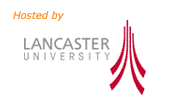Cosmopolitan paradoxes: Migration and emergent systems of transnational rights
Managing contradiction: Civic stratification and migrant rights in Europe
Professor Lydia Morris, Department of Sociology, University of Essex
The realities of the New Asylum paradigm
Dr Liza Schuster, Department of Sociology, City University
Matters of agency and social transformation for migrant women from Mediterranean countries
Dr Eleni Hatzidimitriadou, European Centre for the Study of Migration and Social Care, University of Kent
Social capital, agency and pathways to inclusion: The case of Albanian migrant women in Greece
Dr Gabriella Lazaridis, Department of Sociology, University of Leicester
Social science literature has discussed the Mediterranean as a ‘crossroads of civilisations’, a cultural melting pot, a ‘buffer zone’ between East and West (Herzfeld 2002) and a region that holds the key to the construction of a ‘Eurasian’ coalition and identity (Delanty 2005: 189-90). No matter how one describes the Mediterranean, at the level of ‘social time’ (Braudel 1972) the region has repeatedly figured as a ‘host’ for migrant populations, transient groups such as traders and travellers and, recently, in the aftermath of the wars in the Middle East and the political re-organisation of the former Soviet space, a ‘passage’ for asylum seekers and refugees. Today, the convergence of international immigration in, and emigration from, the Mediterranean, followed by growth in global flows of labour which bolster cultural heterogeneity and social change, is a central issue for its developing societies. In effect, the movement of populations from disadvantaged regions of the world in search of a better future confronts Mediterranean societies with the complexity of diverse mobilities - of culture, capital, travel and labour, to mention but a few (see also Urry 2000: 1).
Yet, different mobilities are inescapably interdependent: global economies already define the structural role of human beings (as labour, consumers and socio-cultural ‘pariahs’) and reproduce (often unsound) socio-cultural orders. As a result, global flows of labour and peoples, reminiscent of the late nineteenth-century ‘great transformation’ (Polanyi 1944) that followed the intensification of global interconnectedness (Held et.al. 1999), posit a series of questions concerning the right to mobility (who is allowed to move and stay at the chosen destination?), the hierarchical structure of mobilities (are social inequalities internally differentiated i.e. does gender difference matter?) and ultimately, the preservation of transnational democratic principles (i.e. can we resolve dilemmas inherent in processes of civic stratification in egalitarian and just ways?). This workshop will explore the key issue of migration in relation to Mediterranean and wider European policies on migration as mobility, citizenship and human rights, and the challenges this presents for the fostering of distinctive Mediterranean socio-cultural identities.
ORGANISERS:
Rodanthi Tzanelli r.tzanelli@kent.ac.uk
Javier Caletrio j.caletrio@lancaster.ac.uk
| Home | Mission
Statement | About Us | Networks
| Seminar Series | Events
|
| News |
Critical Mobilities | Contacts |

